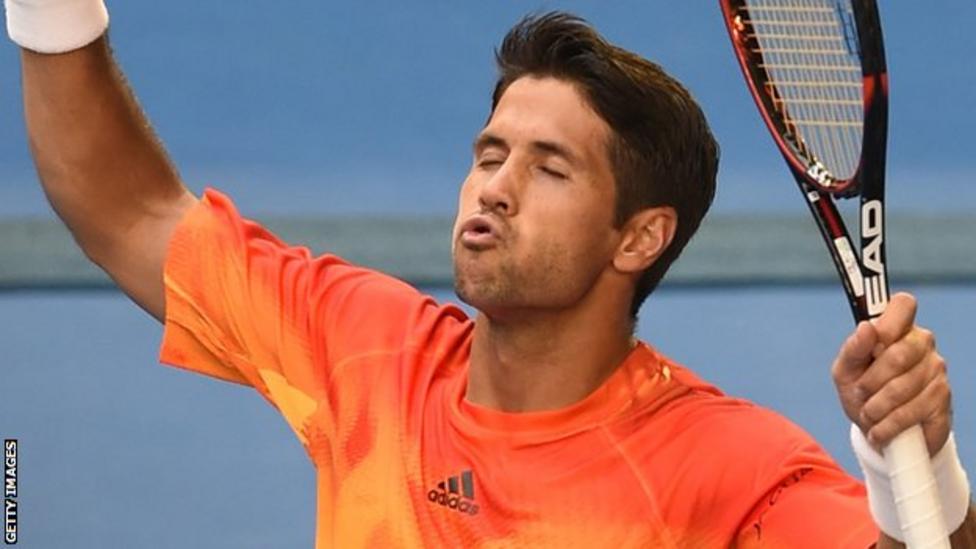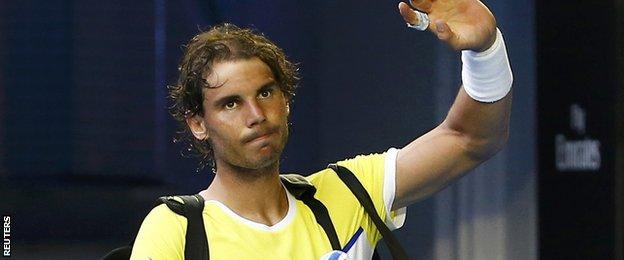Seven years ago, Rafael Nadal outlasted Fernando Verdasco in a semi-final that, to that point, was the longest Australian Open match in history: 5hours, 14minutes. It couldn't happen again, could it?
More to the point, it couldn't happen again, with the result reversed - namely, with Nadal leaving the tournament before he's warmed up?
Well, yes, it could.
 Early exit: Rafael Nadal. Photo: AP
Early exit: Rafael Nadal. Photo: AP
The sequel to the 2009 late nighter proved almost as lengthy, and eclipsed the original epic in this critical, unthinkable respect: Nadal lost.
In the Australian Open's most significant upset yet, Verdasco ousted Nadal 7-6, 4-6, 3-6, 7-6, 6-2. Nadal had led 2-0 in the fifth set - at which point, you wouldn't have backed Fernando with counterfeit money.
But Verdasco, who belted 90 winners in the course of the 4 hours 41 minutes, unexpectedly raised his game and the reeled off both a succession of winners and games. He won the last six games and essentially dusted Nadal off the court.

"I think I played unbelievable in the fifth set," Verdasco said, adding that he just kept "hitting winners...I don't know how."
It was surprising, and thrilling - though it is also reasonable to wonder if we were seeing confirmation of Nadal's gradual decline, as his body's struggles begin to afflict his own faith.
It was a reversal of the normal pattern for Nadal, who is harder to beat in battles of will and endurance than nearly anyone in the game's history. That he lost the first set was no cause for concern for Rafa fans - it merely confirmed that this match would be a long day's journey into night.
No matter how long it went, no matter how he battled against the explosive Verdasco, it was hard to believe that Nadal would actually lose. Nadal doesn't lose in the opening round anywhere, much less at grand slams (it happened just once at Wimbledon).
Even though the opening two sets stretched for more than two hours, Nadal seemed looked likely to prevail for much of the match. He did not only lead two sets to one, he also led 2-0 in the fifth set and seemed to have a marginal edge.
Verdasco hasn't beaten Nadal much, as the 14-2 record suggests, but Verdasco's "A game" is pretty formidable, befitting a player who's been top 50 for a dozen years. Fernando's 2009 near miss was no fluke - there wasn't something in the air that night.
Fernando has weapons - a monstrous left-handed serve, and a heavy-duty forehand. He was the aggressor versus Nadal, who relied, as ever, on wearing his opponent down and committing fewer baseline errors. Verdasco belted an astonishing 90 winners to his more decorated compatriot's modest 37.
This time, the attacker won.

Where does this leave Nadal? Measured by results, 2015 was his least productive year for Nadal since he was an precocious teen in 2004 - which is to say, he didn't win the French Open. Yet, he finished the year ranked five.
He's coming down, but he's descending from an almighty height.
(c) The Age
No comments:
Post a Comment